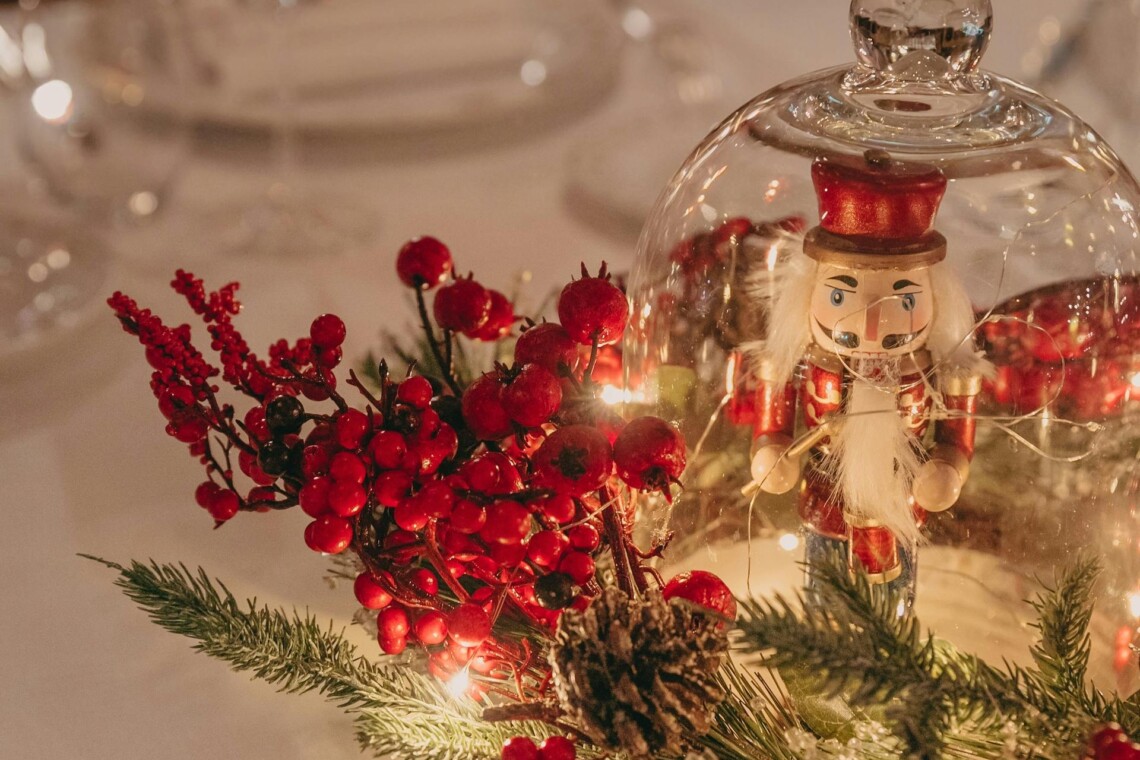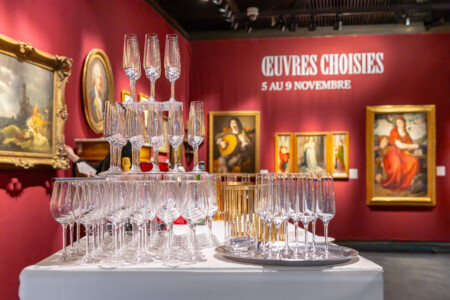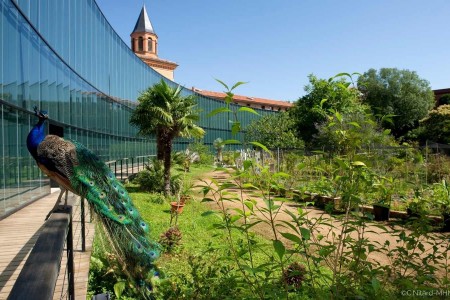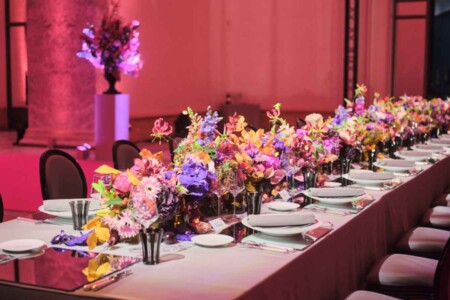An XXL version of your B2B cocktail party in the capital: maximum impact?
- June 9, 2025
- Events
Your business marketing trump card: an event with maximum impact for a minimum budget. The solution: a B2B cocktail party... Endd out more

Why did Charlemagne choose Christmas to be crowned emperor? What contribution did Marie de Médicis make to establishing the Catholic tradition in France? How did a bittersweet episode of the Great War open a window on a then-unimaginable European future? In this last week of Advent, Loc'Hall revisits Christmases that, each in their own special way, have shaped a living European heritage.
While the tradition of Christmas is firmly rooted in its Christian origins - it does, after all, celebrate the nativity - its genesis is a little more meandering. Very early on, pagan culture celebrated winter at the solstice, around December 21. Still at the end of December, the Romans feasted and exchanged gifts for the Saturnalia. Germanic and Scandinavian peoples, meanwhile, burn a log in the fireplace to the glory of light and the cycle of the seasons: this is the Yule ceremony.
Banquets, gifts... and even the log... the only thing missing is the Christmas tree, introduced much later, in 1837, by Duchess Hélène de Mecklembourg-Schwerin, wife of the Duc d'Orléans. The favorite holiday of little - and big - children has its roots in the whole of Europe. And over the centuries, certain events have contributed even more to building a communion of souls around famous episodes: the Christmases that have shaped the Europe of today.
At the time of his coronation, Charlemagne was already the most powerful ruler in Europe, reigning over Italy, Germany and, of course, Gaul. A fervent defender of Christianity, he had succeeded in unifying most of Western and Central Europe. But after the long void left by the fall of the Roman Empire, the West was looking for a new lease of life. It was to come from the King of the Franks and Pope Leo III.
This Christmas in 800, Charlemagne was in Rome. He attended the Nativity Mass in St. Peter's Basilica. As he kneels on the paved floor, the pope suddenly girds his head with the imperial crown. The crowd immediately proclaimed him Imperator Romanorum. In this founding moment of medieval Europe, the grandson of Charles Martel and son of Pepin the Short became emperor of the Holy Roman Empire, joining Clovis in Christian legend.
In the last decades of the 12th century, Giovanni di Pietro Bernardone was born in Assisi: Francis, the saint who talked to birds. The same Francis, if he didn't invent it, is the father of the Western-style living crib. Some four hundred years later, Marie de Médicis joined the French crown when she married Henri IV in 1600. She brought with her her Florentine upbringing, a breath of Tuscan culture and the Italian traditions of the Catholic faith.
She had barely been crowned queen when Henri IV was assassinated. Marie was the worthy heiress of a family renowned for its political skill. As regent of the kingdom of France, the mother of eight-year-old Louis XIII understood that she had to consolidate her fragile power. In a bid to unite the people around powerful symbols, she introduced live nativity scenes to France. To this day, the tradition persists, giving rise to a veritable competition in towns and villages throughout France.
Christmas pudding, mistletoe, mince pies, roast turkey and crackers - those charming tubes adorned and garnished with delicious surprises for children - are English Christmas staples. Yet the XVIIᵉ century, under the iron rule of the highly puritanical Cromwell, almost saw the disappearance of traditions to which Britain and the Commonwealth remain unfailingly attached.
But in the Victorian era, Christmas takes its revenge. Prince Albert was of Germanic descent. In tribute to her husband's culture, Queen Victoria introduced the Christmas tree to the English court in the 1840s.
At the same time, the company rivalled each other in creativity:
By the early 1930s, a tradition had been established: the royal speech, broadcast by the BBC from château in Sandringham. George V was the first to submit to the exercise, to a text written by Rudyard Kipling. The very young Queen Elizabeth II took up the baton in 1952.
This strong tradition of Christmas festivities also sustained English morale in the troubled times of the 20th century: Winston Churchill delivered some of his most powerful speeches on these occasions.
To round off this tour of a Europe where Christmas plays both a social and political role, it's impossible to miss one of the most powerful symbols of a thousand-year-old tradition: The Christmas Truce of 1914.
In August 1914, the First World War sounded the death knell for a short-lived European peace. In the first winter of an interminable butchery, German, French, British soldiers and their allies fight relentlessly. Cold, fear and death are everywhere. But suddenly, a miracle occurs: spontaneously, in several places on the front line, for a few precious hours, hostilities cease.
For just a moment, the enemy soldiers fraternize. They sing Christmas carols, dare a few gestures of peace, share meager victuals and tobacco. Is it a legend? Football games are said to have been played during this suspended moment.
Today, Christmas has taken on other dimensions. What was originally a religious festival confined to a specific time frame has become an extended period of celebration, a break from the daily routine where we all share multiple and singular moments. Open to the world, there is no longer just one Christmas, but many Christmases: with family, friends, colleagues and partners, on a beach at the other end of the world or in the cosy warmth of a country cottage, Christmas can be combined in infinite ways.
At Loc'Hall, the Christmas season offers us the opportunity to celebrate, more than ever, the venues heritage and culture that thrill us, and you, all year round. On this gentle blog post, we wish you :
Merry Christmas to all!

Your business marketing trump card: an event with maximum impact for a minimum budget. The solution: a B2B cocktail party... Endd out more

In the heart of the Pink City, discover venues exceptional heritage and cultural sites and experience your most beautiful professional events in Toulouse.... Endd out more

Are you a "table director"? In 2025, the table arts are undergoing a revolution, transforming the sit-down meal into a... Endd out more
Your business marketing asset: a... Endd out more
In the heart of the Pink City,... Learn more
Are you a "table director"? In... Endd out more
Please enter your username or email address. You will receive a link by e-mail to create a new password.
Reset password
If the email address entered corresponds to an account, the reset link has been sent by email.
Disconnecting...
Would you like an advisor to call you?
Our advisors are available Monday to Friday, 9am to 6pm.
We have taken into account your request for a quote.
Our virtual assistant, Annabelle, will call you back within 5 minutes* to qualify your request. Our team will then be able to get back to you very quickly!
*Between9 a.m. and 7 p.m. in France only
From the choice of venue to the complete organization of your event, the team at Loc'Hall Events team offers you personalized, tailor-made support.
A Loc'Hall Events expert will contact you within 48 hours to discuss your brief in detail.
Join The Discussion